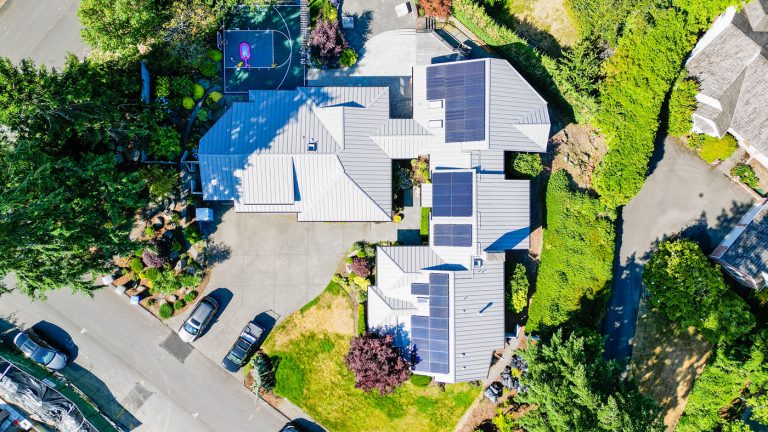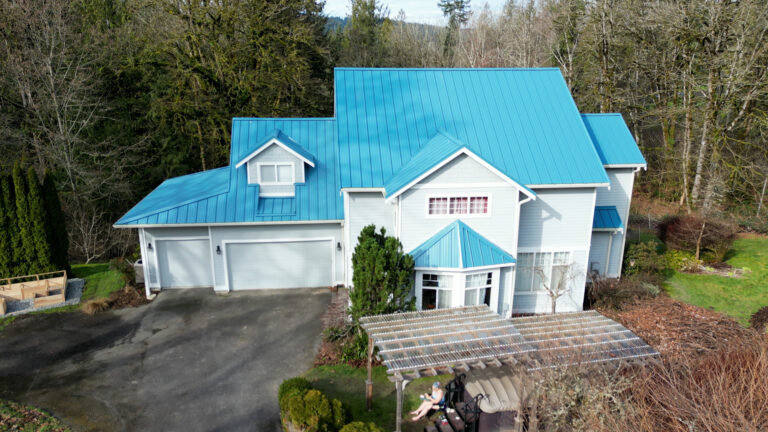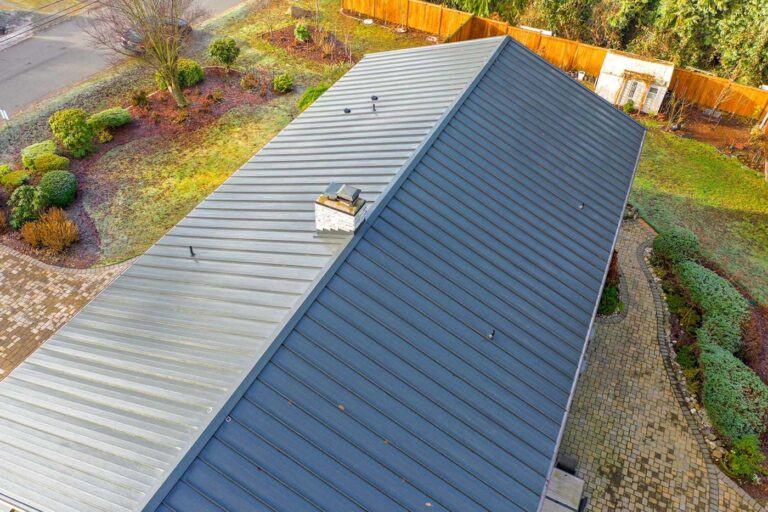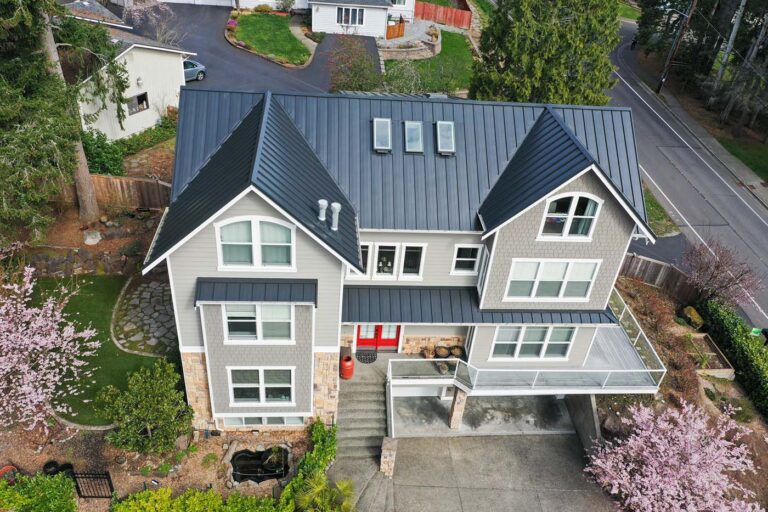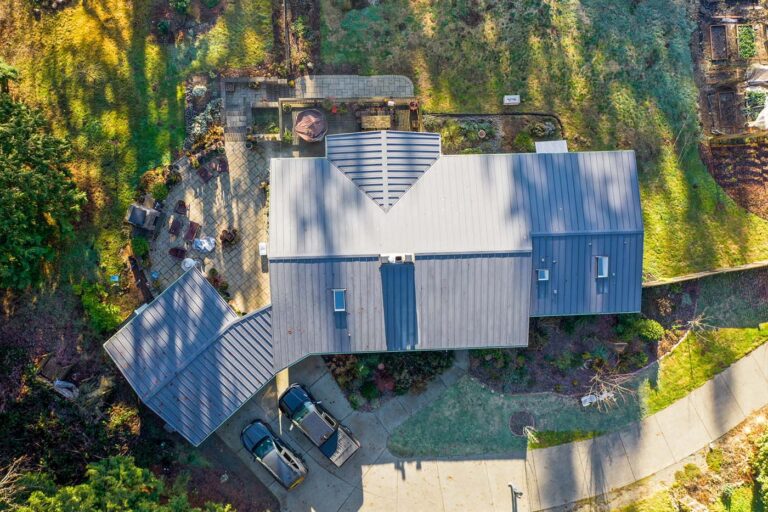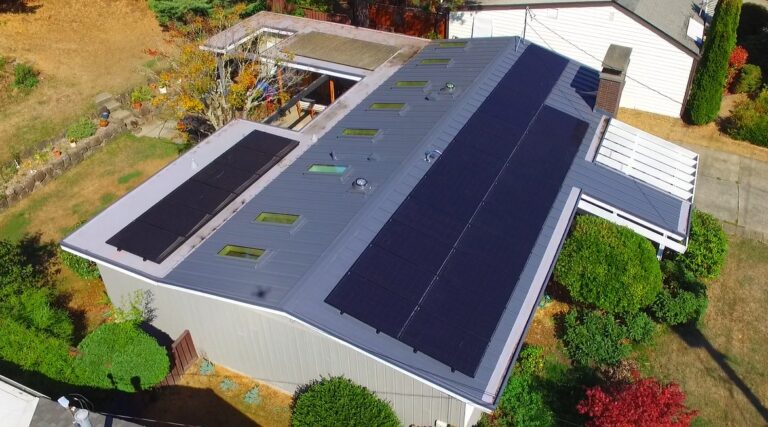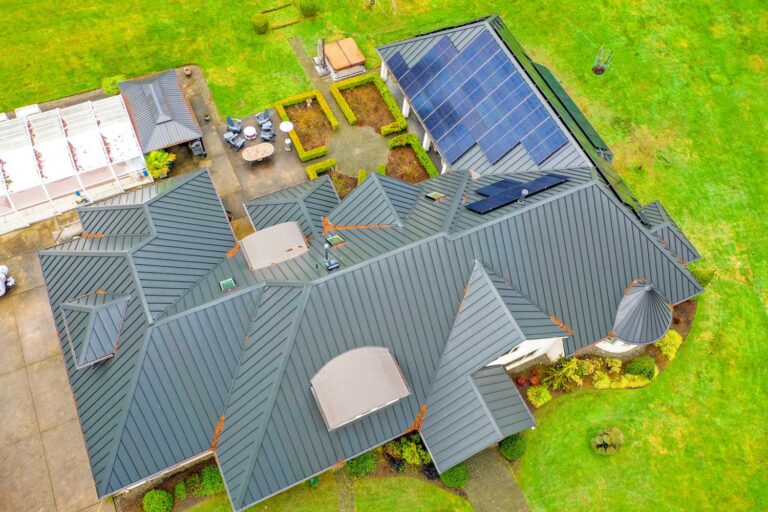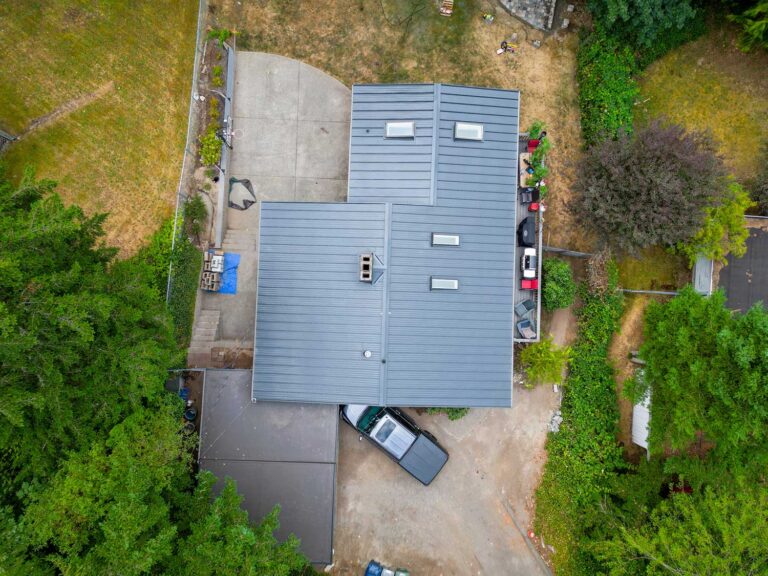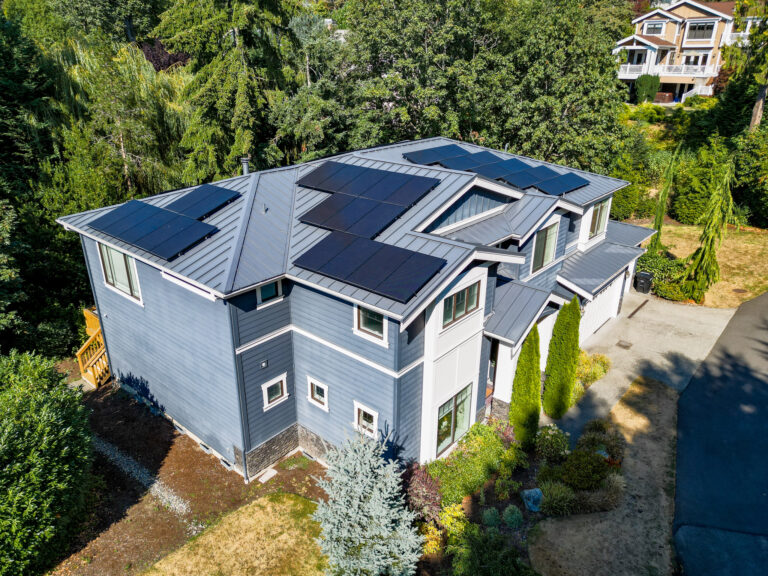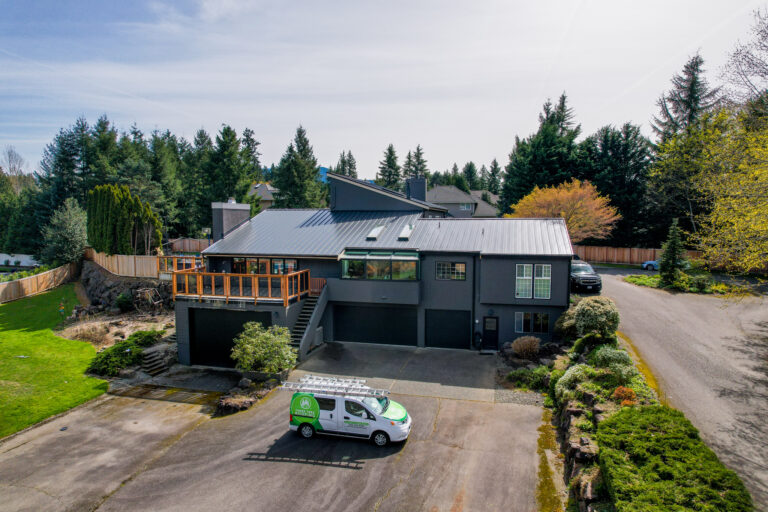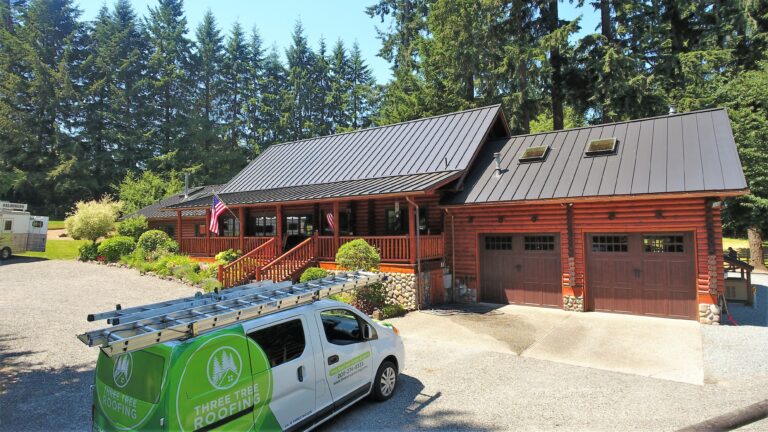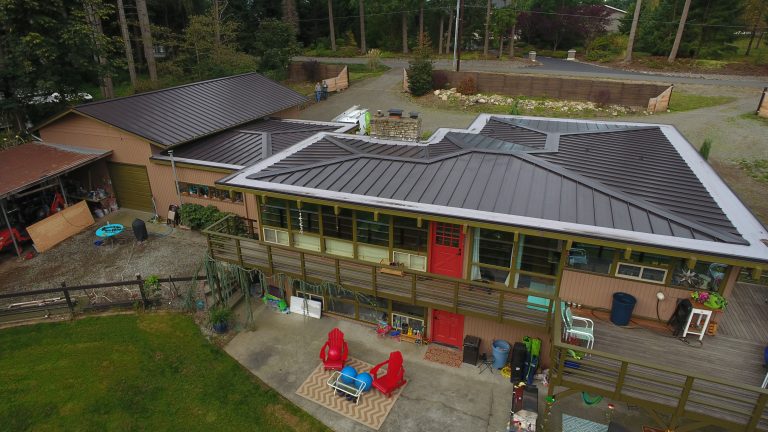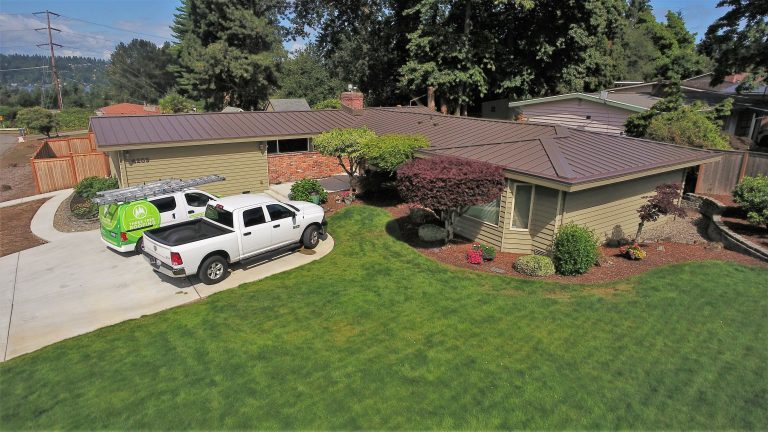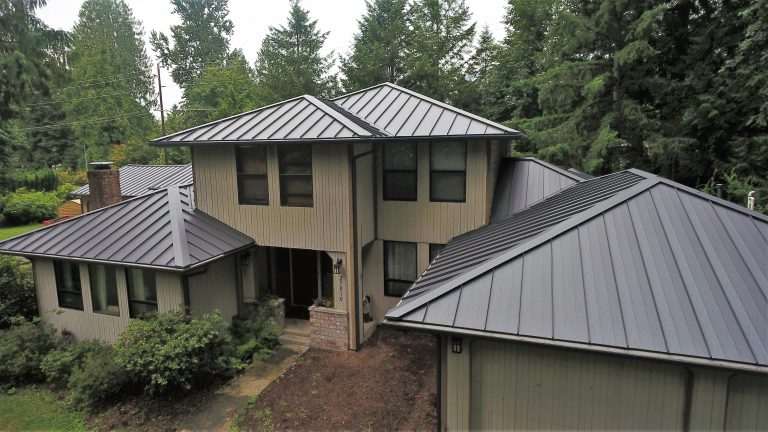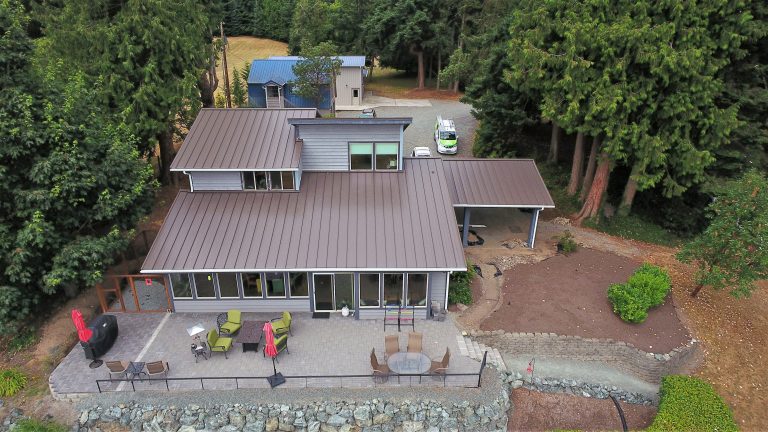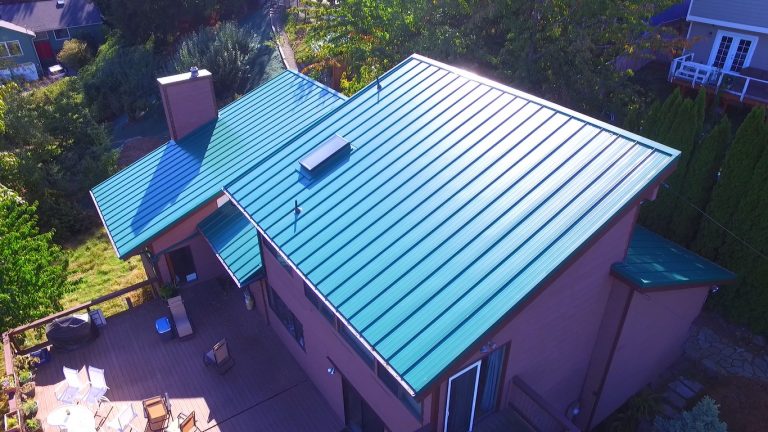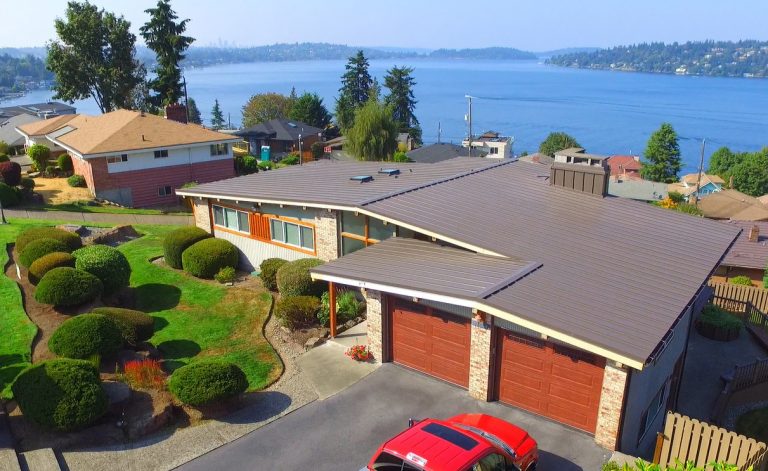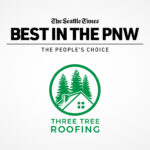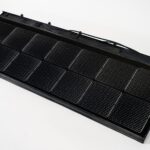YES, metal roofs rust if they are not protected from the elements with a protective coating.
We are Seattle area roofers, born and raised in the great state of Washington. We are specialists in metal roofing. Enjoy this video about "Does a Metal Roof Rust?".
An In-Depth Look at Corrosion Prevention
Here's a metal question that we get asked quite a bit. Does metal rust? The answer is "Yes", however with the right materials, protective coats and installation techniques a metal roof will retain its long-term benefits of durability, energy efficiency and design versatility without any worry about corrosion. This blog post looks at what causes rusting so you know exactly how different types of metals react as well as making sure protective coatings are correctly applied during installation. Thus preventing any future build up from occurring on your roof!
Key Takeaways
- Metal roofs require an understanding of rust formation, the selection of appropriate materials and coatings, and proper installation techniques to prevent corrosion.
- Galvanized and galvalume steel are usually the best options. Aluminum and copper are all highly resistant to rust as well, but have drawbacks.
- Protective coatings can also improve resistance while paint systems enhance aesthetics.
- Regular maintenance & inspections as well as correct installation is essential for protecting from metal roofs rust & extending their lifespan.
Understanding Metal Roof Rust
First, let's explore the science and the conditions that contribute to the formation of rust. Rusting of iron alloys creates a flaky red-brown compound known as iron oxide which weakens metals when exposed to oxygen or moisture. In preventing corrosion on steel roofs coatings are used that slow down oxidation processes along with appropriately installed roofing material made out of specifically designed metallic alloys for increased resilience against corrosive environments.
The Science Behind Rust Formation
When iron comes in contact with both oxygen and moisture, the resulting process is called oxidation which leads to rust which weakens steel roofs. This phenomenon is exclusive to metals containing iron such as steel. Some materials (such as copper) go through different forms of corrosion like patina forming a green protective layer that prolongs its longevity instead of weakening it. This makes copper a very suitable roofing material.
Factors Influencing Rust Development
When it comes to metal roofs, there are several factors that can contribute to rusting.
- Moisture: High levels of humidity, rain, or other forms of moisture can accelerate the rusting process.
- Exposure to the elements: Unprotected exposure to weather conditions such as rain, snow, and sunlight can speed up further corrosion.
- Lack of protective coating: Bare steel or metal without a protective coating is more susceptible to rust.
- Material type: The type of metal used can influence how quickly rust develops. For instance, certain metals like copper and aluminum are more resistant to rust than others.
- Environmental factors: If the roof is in an environment with high salt levels, such as coastal areas, rust can develop more quickly.
- Inadequate maintenance: Failing to regularly clean and apply protective coatings can lead to rusting.
- Poor installation: Improper installation techniques, such as not sealing panel ends with zinc-coated galvanized steel, can expose the metal to oxygen and moisture, leading to rust.
Metal Roofing Materials and Their Rust Resistance
When it comes to choosing the best metal roof for your home, we need to understand its rust resistance. Comparing various metal roof materials in terms of their corrosion and ability to prevent rust can help you make a well-informed decision. Here are some insights into different metals:
Galvanized Steel: Galvanized steel is an iron or steel alloy which has been covered with a protective layer of zinc preventing rust and corrosion. This coating works as a defensive barrier, reducing the likelihood that the underlying metal will experience oxidation. Thus providing prolonged anti-rust security. Galvanized steel can be found in two familiar substrates - G100 and G60 – referring to how much zinc was used on both sides of panel surfaces. Where 1oz per square foot for each panel would designate it as being ‘G100’ whereas 0.6 oz squared ft means it would become categorized under ‘G60’.
To get optimal protection against corroding, suitable installation & maintenance are needed when using galvanizing technologies such as metal panels made out of this type of treated metal so no shavings drop onto their surface during construction work since those could cause premature rusting due to contact between material components (metal) & surrounding environment elements (zinc).
Galvalume Steel: Galvalume steel is an ideal choice for many steel roofs in areas prone to corrosion, due to the protective coating formed from its combination of aluminum and zinc. This layer stops rust and corrosion forming on the base metal, making it significantly more resistant than other steel. Not only does this enhance protection against weathering but also provides a sophisticated appearance as well as superior durability compared with regular roof materials such as wood or asphalt shingle. The unique amalgamation of these three substances offers higher levels of safety since they form a sturdy shield that prevents oxidation or other damage caused by external factors like environmental pollution. Thus ensuring long-lasting quality performance during all conditions for your home’s metal roof system needs over time.
Aluminum Roofs: While aluminum roofs are sought after for their inherent rust resistance and minimal maintenance requirements, they may not always be the best choice. This material, albeit lightweight and suitable for various architectural styles, may not offer the necessary strength for certain applications unless high-grade aluminum is used. Therefore, despite its excellent resistance to damage from moisture or oxidation processes, aluminum is often not the first recommendation for roofing due to its potential weakness.
Copper Roofs: Copper roofs are another great option for homeowners seeking rust resistance. Like aluminum, copper has excellent corrosion resistance and forms a protective layer when exposed to moisture. In the case of copper, this protective layer is known as patina, a green result of copper oxidation over time. Copper roofs are durable and well-suited to various architectural styles and applications. Despite requiring minimal maintenance, they provide excellent protection against rust damage from exposure or environmental conditions. However, it's important to note that copper is significantly more expensive than other materials, which might make it an impractical choice for some homeowners.
Ultimately speaking, each one requires special care through maintenance practices associated around cleanliness & preservation techniques if wanting them lasting longer time periods since these metals act differently depending upon surroundings.
Nu-Ray Metal Roofing - Panels
Nu-Ray Metal Roofing is a well-known brand that specializes in high-quality, rust-resistant metal roof panels. Their cutting-edge technologies and carefully crafted materials and steel panels are designed to effectively prevent corrosion, ensuring the longevity of your roof. The metal roofing panels offered by Nu-Ray are not only durable and reliable, but also come in a wide range of aesthetically pleasing designs and colors. This allows you to enhance the overall look of your home while providing optimal protection against the elements. With Nu-Ray Metal Roofing, you can rest assured that your roof will stand the test of time.
See Nu-Ray Metal Roofing Options
Protective Coatings and Paint Systems for Metal Roofs
Metal roofing must be rust-resistant and an appropriate protective coating or paint system can play a crucial role in that. One example of such finishes is zinc oxide, used to help protect metal roofs from corrosion. Among the numerous coatings available are Silicone Modified Polyester (SMP) and PVDF (Kynar 500®). These provide great defense against extreme weather conditions as well as better gloss retention, fade resistance, color preservation attributes compared to other materials for exterior use.
SMP (Silicone Modified Polyester) Coatings: SMP coatings, a combination of silicone and polyester resins which offer the advantage of affordability as well as reliable corrosion resistance compared to other coating types. Not only are they highly weather resistant but also remain glossy in appearance with color preservation over time without fading or chalking. Easy maintenance is an added perk that comes along with SMP coatings, making them ideal for homeowners who want long-lasting protection on their surfaces while still being cost-effective against rusting components.
PVDF (Kynar 500®) Coatings: Metal roof owners who seek extended rust protection and a beautiful finish may want to consider PVDF (Kynar 500®) coatings. These types of fluoropolymer coatings provide durable, superior-performing advantages With other metal coating options. It delivers long lasting allure which is aesthetically pleasing for an extensive period making it worth the additional cost and maintenance required that regular coatings do not need.
Nu-Ray Metal Roofing - Coatings
If you are in the Northwestern United States, Nu-Ray Metal Roofing is a renowned brand that specializes in high-quality, rust-resistant coatings for metal roofing. Their innovative technologies and coatings are designed to effectively prevent corrosion, ensuring the longevity of your roof. The coatings offered by Nu-Ray are not only durable and reliable, but also come in a wide range of aesthetically pleasing designs and colors. This allows you to enhance the overall look of your home while providing optimal protection against the elements. With Nu-Ray Metal Coatings, you can rest assured that your roof will stand the test of time.
See Nu-Ray Metal Roofing Options
Proper Installation and Maintenance Techniques
The life span of metal roofs can be extended by ensuring appropriate installation and care. Here at Three Tree Roofing, we have been in the business of roofing since 2017 and have built hundreds of metal roofs. We have dedicated metal roofing installation teams who go through manufacturer training on a regular basis.
CertainTeed's #1 Roofer in Washington, #14 in the USA
We are a Seattle based, family-owned, company with over 15 years of experience in the Puget Sound area. We specialize in residential and commercial roofing, priding itself on top-quality solutions and building lasting relationships with satisfied clients.
- Award winning roofing contractor
- Dedicated in-house roofing teams and consistent processes
- Sourcing the industry's best roofing materials
- 5-star reviews from all rating platforms
- Customer financing options available
450+
Total 5-Star Reviews
We earned the CertainTeed SureStartTM Plus Award
#1 CertainTeed 5* Star Contractor in Washington
for protecting customers.
Read MoreImportance of Correct Installation
It is important to properly install a metal roof in order for it to be protected from rusting and lasting long. This involves using corrosion-resistant fasteners, sealants, flashing plus making sure that the roof has proper ventilation. Attending to these methods will protect your metal roof against oxidation and extend its life expectancy.
First off, metal roofing needs to be sealed correctly so that no water or moisture gets in, which would lead to corrosion and rust if left unchecked. An example of improperly sealing of a metal roof is when fasteners are left exposed. We frequently observe roofs with screws visibly spread across them. When these screws penetrate the metal, they go through both the paint and the steel, eventually reaching the underlying decking.
This penetration creates an area susceptible to moisture, which can lead to rust formation. To address this issue, we utilize a hidden fastener system. This means that on our metal roofs, you won't find any exposed screws. Instead, we use hidden clips on all the metal ribs. Furthermore, even at the edges—where some companies might still use screws—we employ clips, ensuring that no screws break through the steel.
Signs of a Well-Installed Metal Roof
Recognizing a well-installed metal roof is critical for ensuring its longevity and performance. Here are some key signs to look out for:
- Proper Sealing: All seams and joints should be properly sealed to prevent water intrusion, which can lead to corrosion.
- Correct Fastening: The roof should be securely fastened to the structure. Loose or missing fasteners can lead to roof damage.
- Good Ventilation: Proper ventilation prevents moisture buildup, reducing the risk of rusting and corrosion.
- No Signs of Rust or Corrosion: A well-installed metal roof should show no signs of rust or corrosion, especially around joints and seams.
- Smooth Surface: The surface of the roof should be smooth with no dents, bumps, or irregularities.
- Proper Drainage: The roof should have a design that allows for effective drainage to prevent rust from the pooling of water.
- Appropriate Overhang: The roof should have an appropriate overhang to protect the walls from rainwater.
- Quality Materials: The roof should be made of high-quality, rust-resistant materials and coated with a protective layer to enhance its durability and longevity.
Remember, a well-installed metal roof not only protects your home from the elements but also enhances its aesthetic appeal and increases its value. Below are some of our metal roofing projects to give you an idea of how well installed metal roofs can look. Feel free to check our full roofing portfolio.
THREE TREE ROOFING PROJECT PORTFOLIO
Residential Metal Roof Featured Projects
Regular Maintenance and Inspections
Preventing rust on metal roofs requires regular maintenance and inspections to recognize and solve problems while small, before they become bigger. It’s important to carry out these comprehensive assessments at least annually and extend the lifespan of your roof.
"Metal roofing should be cleaned every 12 months"
CJ McConaghy
Co-owner
Three Tree Roofing
During these routine checks, ensure that all fasteners are securely in place, seams and joints are adequately sealed, and the roof structure has sufficient ventilation. This will help reduce the risk of condensation, which can cause moisture buildup and prevent rust formation on the metal surface.
It's important to note that even the most durable paint or coating can get scratches, sometimes from unexpected sources like birds. Any scratches in the paint or coating should be addressed as soon as possible to prevent rusting on the exposed metal underneath. Many manufacturers provide paint pens specifically designed for fixing small scratches, making it easy to keep your metal roof protected.
Choosing the Right Metal Roof for Your Home
When deciding on the best metal roof for your home, several factors should be taken into account.
- Rust Resistance: The ability of the metal to resist rust is a crucial factor. Metals like steel (galvanized and galvalume) are known for their corrosion resistance.
- Aesthetic Appeal: The look of the metal should complement the style of your home. Different metals can provide different looks, from the shiny appearance of copper to the more subdued look of steel.
- Budget Considerations: The cost of the metal and the installation should fit within your budget. Copper, for example, is a high-quality, rust-resistant metal, but it is also more expensive than other options.
- Specific Needs of Your House: The design and location of your house can also influence the best choice of metal. For example, if your house is in a coastal area, you might need a metal that can withstand salt spray.
- Roofing Material Products: The rust resistance of the roofing material should be a top priority. Materials like galvalume and galvanized steel are typically the best choices, offering long-lasting protection against corrosion.
- Coatings and Paint: Protective coatings and paint systems can significantly enhance the rust resistance of the metal.
- Location and Weather: The geographical location of your home, the typography of the land surrounding it, and the local weather conditions, including wind and water patterns, should also be factored into your decision.
For most homes, Galvanized or Galvalume steel are the best option. If you have a huge bank account and want the most expensive roof possible, go with Copper. Most of the time, avoid Aluminum.
Seeking Professional Advice
When considering a metal roof for your home, enlisting an experienced professional can provide invaluable guidance. If you are in the Seattle area, give us a call at (206) 312-7663 (ROOF). For those outside of Seattle, we recommend finding a reputable roofer in your local area.
Learn more: How to Find a Roofer
These professionals are knowledgeable about the various locally available materials used in creating metal roofs, their rust resistance levels and coatings or paint systems that may be beneficial for you. A professional roofer will also help ensure proper installation techniques to tailor a solution specific to the individual needs of your roof as well as offer advice on maintenance tips going forward.
Wrapping Up
Maintaining a rust-free metal roof is achievable with a basic understanding of corrosion and which are the right materials for your roof. Protective coatings and paint systems are key to the long-term roof preservation and the aesthetics of your roof. Proper installation and regular maintenance are also crucial for the longevity and appearance of your metal roof. By considering these factors and seeking expert advice, you can choose a high-quality, durable, and rust-resistant roof for your property.
